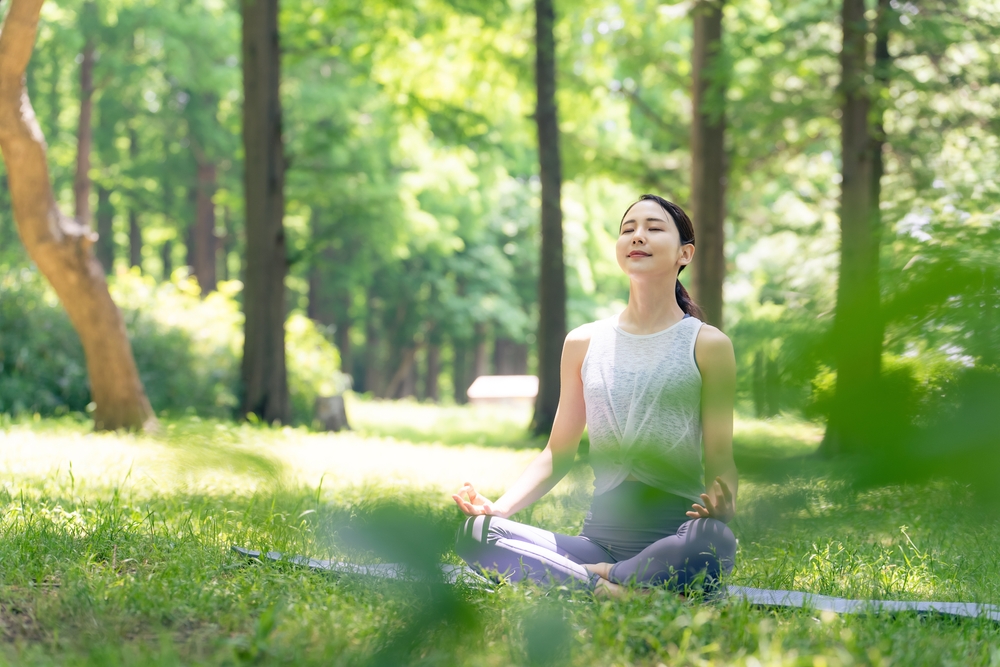Eco-Anxiety and the Rise of Nature-Based Wellness Practices
The intersection of environmental consciousness and mental health has given birth to a unique phenomenon: eco-anxiety. As climate change concerns intensify, individuals are turning to nature-based wellness practices as a coping mechanism. This trend reflects a growing recognition of the intrinsic connection between personal well-being and environmental health.

Research indicates that eco-anxiety is particularly prevalent among younger generations, who face the prospect of inheriting a world profoundly altered by climate change. A 2021 global survey revealed that 60% of young people felt very or extremely worried about climate change, with many reporting that these concerns negatively impacted their daily lives.
The Psychological Impact of Environmental Degradation
The psychological toll of environmental degradation extends beyond anxiety. Studies have shown correlations between climate-related events and increased rates of depression, post-traumatic stress disorder, and substance abuse. Furthermore, the gradual loss of natural environments – a phenomenon known as solastalgia – can lead to a profound sense of displacement and loss of identity.
Mental health professionals are increasingly recognizing the need to address eco-anxiety as a legitimate concern. This acknowledgment has led to the development of new therapeutic approaches that incorporate environmental awareness and action as part of the healing process.
Nature-Based Wellness Practices
In response to growing eco-anxiety, a new wave of wellness practices has emerged, emphasizing reconnection with nature as a path to mental and emotional balance. These practices draw on the concept of biophilia – the innate human affinity for nature – and seek to harness the restorative power of natural environments.
Forest bathing, or shinrin-yoku, is one such practice gaining popularity. Originating in Japan, forest bathing involves immersing oneself in nature using all five senses. Research has shown that this practice can reduce stress hormone levels, lower blood pressure, and improve overall well-being.
Eco-Therapy and Green Exercise
Eco-therapy, also known as nature therapy, is an emerging field that combines traditional therapeutic techniques with outdoor activities. This approach recognizes the healing potential of nature and incorporates it into mental health treatment plans. Eco-therapists may conduct sessions in natural settings or assign nature-based homework to clients, such as gardening or wildlife observation.
Green exercise, another growing trend, involves physical activity in natural environments. Studies have demonstrated that exercising in green spaces provides greater mental health benefits than indoor workouts. Activities like outdoor yoga, hiking, and beach cleanups are gaining traction as ways to combine physical fitness, mental well-being, and environmental stewardship.
Mindful Consumption and Sustainability Practices
As awareness of eco-anxiety grows, many individuals are turning to mindful consumption and sustainability practices as a way to alleviate their environmental concerns. This shift has led to the rise of zero-waste lifestyles, minimalism, and conscious consumerism.
Engaging in these practices not only reduces one’s environmental impact but also provides a sense of agency and control. By making deliberate choices about consumption and waste, individuals can feel they are actively contributing to environmental solutions, which can help mitigate feelings of helplessness associated with eco-anxiety.
Community-Based Environmental Initiatives
Recognizing the power of collective action, many people are seeking solace and purpose in community-based environmental initiatives. Participation in local conservation efforts, community gardens, and environmental advocacy groups can provide a sense of connection and shared purpose.
These community initiatives serve a dual function: they contribute to tangible environmental improvements while also fostering social bonds and support networks. This combination of meaningful action and social connection can be particularly effective in combating the isolation and powerlessness often associated with eco-anxiety.
The Role of Technology in Nature-Based Wellness
While it may seem counterintuitive, technology is playing an increasingly important role in connecting people with nature-based wellness practices. Apps that guide users through forest bathing experiences, virtual reality programs that simulate nature immersion, and online platforms that connect eco-anxious individuals with support groups are all emerging as tools in the nature-wellness toolkit.
These technological solutions are particularly valuable for urban dwellers who may have limited access to natural spaces. They also serve as a gateway, encouraging individuals to seek out real-world nature experiences and engage more deeply with environmental issues.
Conclusion
The rise of eco-anxiety presents both challenges and opportunities for society. While it reflects the very real concerns about our planet’s future, it has also catalyzed innovative approaches to mental health and wellness. Nature-based practices offer a promising pathway for individuals to find balance, purpose, and connection in the face of environmental uncertainty.
As we continue to navigate the complex relationship between human well-being and planetary health, these emerging trends in nature-based wellness may prove crucial in fostering resilience and inspiring positive environmental action. By reconnecting with nature, we may find not only personal healing but also the collective strength to address the environmental challenges that lie ahead.






